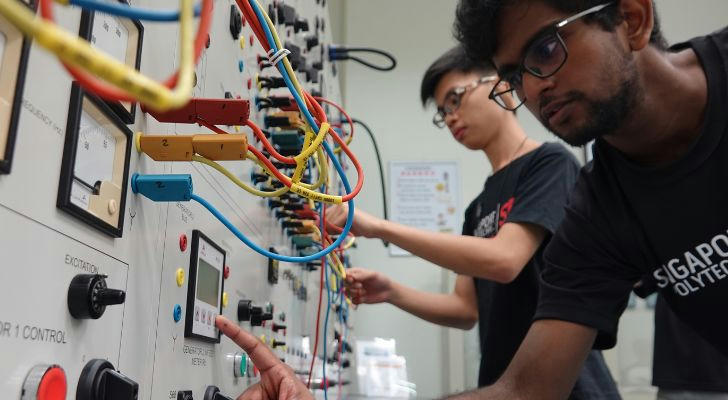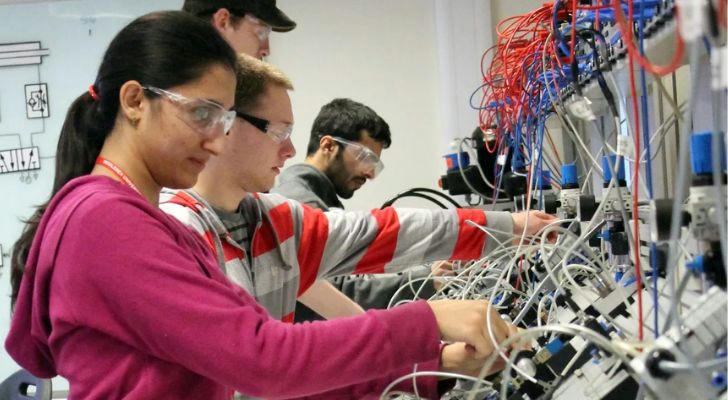Navigating Electrical Certification and Training Programs in the United States
The electrical trade is a cornerstone of modern infrastructure, powering homes, businesses, and industries. For those pursuing a career in this field, obtaining proper certification and completing accredited training programs are critical steps toward professional success.
This article explores the pathways to becoming a certified electrician in the U.S., the importance of structured coursework, and how to select programs that align with industry standards.

Understanding Electrical Certification Requirements
In the United States, electricians must meet state-specific licensing requirements to work legally. These requirements typically involve a combination of classroom education, hands-on training, and passing standardized exams. Certification ensures that professionals possess the technical knowledge and safety expertise necessary to handle complex electrical systems.
1. Apprenticeship Programs
Most states mandate that aspiring electricians complete an apprenticeship before qualifying for licensure. These programs, often lasting 4–5 years, blend classroom instruction with paid on-the-job training. Apprentices learn to install wiring, troubleshoot systems, and adhere to the National Electrical Code (NEC), a standardized set of safety regulations.
2. Journeyman and Master Electrician Exams
After completing an apprenticeship, electricians may take a state-administered exam to become a journeyman. This credential allows them to work independently. With additional experience (usually 2+ years), journeymen can pursue a master electrician license, which qualifies them to design systems, manage projects, and supervise others.
3. Specialized Certifications
Electricians may also pursue niche certifications, such as in solar panel installation, industrial machinery, or smart home technology. These credentials enhance employability in rapidly evolving sectors of the electrical trade.
The Role of Structured Coursework
While apprenticeships provide practical experience, formal coursework lays the theoretical foundation for electrical work. Reputable programs cover essential topics like electrical theory, circuitry, safety protocols, and code compliance. For example, introductory courses often include modules on:
Electrical Fundamentals: Ohm’s Law, voltage, current, and resistance.
Safety Practices: Proper use of personal protective equipment (PPE) and lockout/tagout procedures.
Blueprint Reading: Interpreting technical diagrams for residential and commercial projects.
NEC Standards: Understanding updates to the National Electrical Code.
Online learning platforms have made such education more accessible. Comprehensive courses allow students to study at their own pace while balancing work or personal commitments. Many programs also offer interactive simulations to reinforce concepts like circuit design or fault diagnosis.

Choosing the Right Training Program
Selecting an accredited program is vital for ensuring that coursework meets industry standards. Here are key factors to consider:
1. Accreditation
Verify that the program is recognized by relevant bodies, such as the National Center for Construction Education and Research (NCCER) or state licensing boards. Accreditation guarantees that the curriculum aligns with NEC guidelines and employer expectations.
2. Curriculum Depth
Look for programs that cover both foundational and advanced topics. A robust curriculum should address:
Residential, commercial, and industrial electrical systems.
Energy efficiency and renewable energy integration.
Emerging technologies, such as electric vehicle charging stations.
3. Instructor Expertise
Courses led by licensed master electricians or industry veterans provide insights into real-world challenges. Instructors with field experience can offer practical tips beyond textbook knowledge.
4. Flexibility and Resources
Many aspiring electricians juggle training with existing jobs. Programs offering recorded lectures, downloadable materials, and 24/7 access to learning platforms cater to busy schedules. Additionally, look for courses that include practice exams to prepare for licensing tests.
The Value of Continuing Education
The electrical industry is dynamic, with frequent updates to safety codes and technological advancements. Continuing education (CE) courses help licensed professionals stay current. For instance, changes to the NEC—released every three years—require electricians to update their knowledge of grounding requirements, arc fault circuit interrupters (AFCIs), and other critical areas.
CE opportunities also allow electricians to diversify their skills. Courses in areas like energy auditing or home automation systems can open doors to specialized roles or entrepreneurial ventures.
Career Prospects for Certified Electricians
The demand for skilled electricians remains strong across the U.S. According to the Bureau of Labor Statistics, employment in this field is projected to grow 6% from 2022 to 2032, faster than the average for all occupations. Factors driving this growth include:
Infrastructure Upgrades: Aging electrical systems in homes and commercial buildings require modernization.
Renewable Energy Expansion: Solar and wind projects need qualified technicians for installation and maintenance.
Smart Technology Integration: The rise of IoT devices and energy management systems creates new opportunities.
Certified electricians earn competitive salaries, with median annual wages exceeding $60,000. Those with master licenses or specialized certifications often command higher pay.

Conclusion
Becoming a certified electrician in the U.S. requires dedication to education and hands-on training. By completing accredited coursework, apprenticeships, and licensing exams, individuals gain the expertise needed to excel in this vital profession. As technology evolves, ongoing learning ensures electricians remain at the forefront of industry advancements. For those entering the field, selecting rigorous, flexible training programs is an investment in a stable and rewarding career.
Whether starting with foundational courses or pursuing advanced certifications, electricians play an indispensable role in powering the nation’s future—one circuit at a time.
